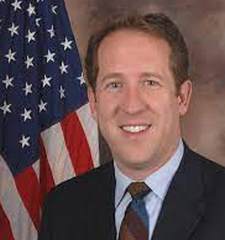![]()

Reps. Adrian Smith (R-NE), Danny K. Davis (D-IL), and Randy Feenstra (R-IA) introduced the bipartisan Small Business Dependent Care FSA Opportunity Act. This legislation would create a new tax credit for small businesses with up to 100 employees for the start-up costs of offering Dependent Care Flexible Spending Accounts (DCFSA) as an employee benefit.
The members released the following statements:
“American households hit by record inflation in recent years have been forced to make difficult decisions to meet childcare needs,” said Rep. Smith. “Empowering small businesses to expand their offering of competitive benefits to employees with dependents can help small employers attract new talent while also helping workers as they face the challenges of parenthood. This is a win-win supporting both hardworking families and small business growth. I thank Reps. Davis and Feenstra for joining me in this effort.”
“The tax code is an important part of a comprehensive federal effort to help families struggling with the high cost of child care,” said Rep. Davis. “I am happy to work with my colleagues to assist the millions of employees who work for small businesses in accessing the dependent care flexible spending accounts by offsetting the program start up costs for these small businesses. This change will work together with essential child care grants and child care tax credits to give a tax break to families to help them thrive.”
“On my 36 County Tour, I have met with families, small business owners, and childcare providers who are rightfully concerned about the skyrocketing cost of childcare. Coupled with inflation, parents are struggling to find affordable childcare options that fit into their schedules and careers,” said Rep. Feenstra. “I’m proud to work with my colleagues to introduce legislation that will make it easier for small businesses to help their employees cover the cost of childcare. It can be harder for small businesses – which employ the vast majority of Americans – to offer the same types of benefits as larger companies, but with smart policies like this, we can level the playing field and lower childcare expenses for our families.”
Based on a similar, successful credit addressing the start-up costs for small business owners who begin offering retirement plans, the bill seeks to address the gap in access to DCFSAs for small business employees. According to the 2023 Bureau of Labor Statistics Employee Benefits Survey, only 27 percent of employees of small businesses with fewer than 100 employees have access to a DCFSA, while 61 percent of employees at larger businesses have access to one. DCFSAs allow single filers and married couples filing jointly to contribute up to $5,000 per year to an employer-provided account, pre-tax, to help pay for the childcare costs of dependent children under the age of 13 or for the care of an adult spouse or dependent unable to work or care for themself.
Read the bill here.
